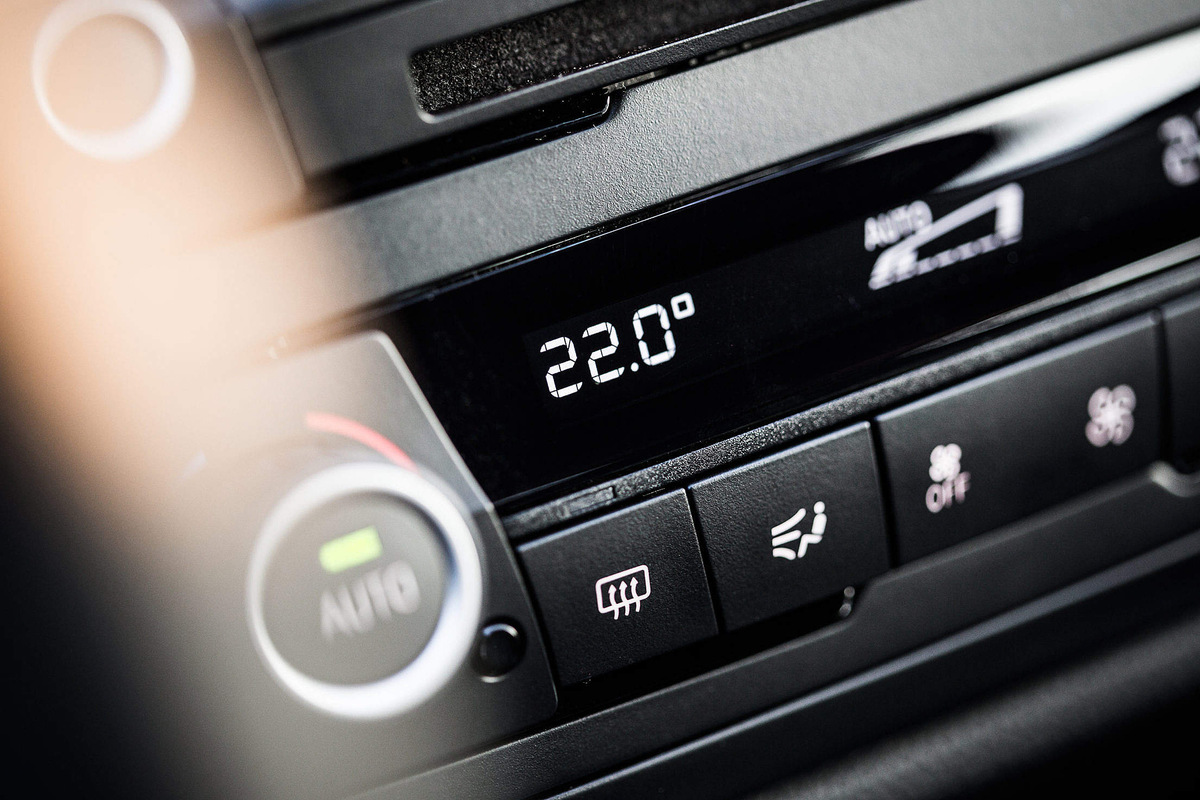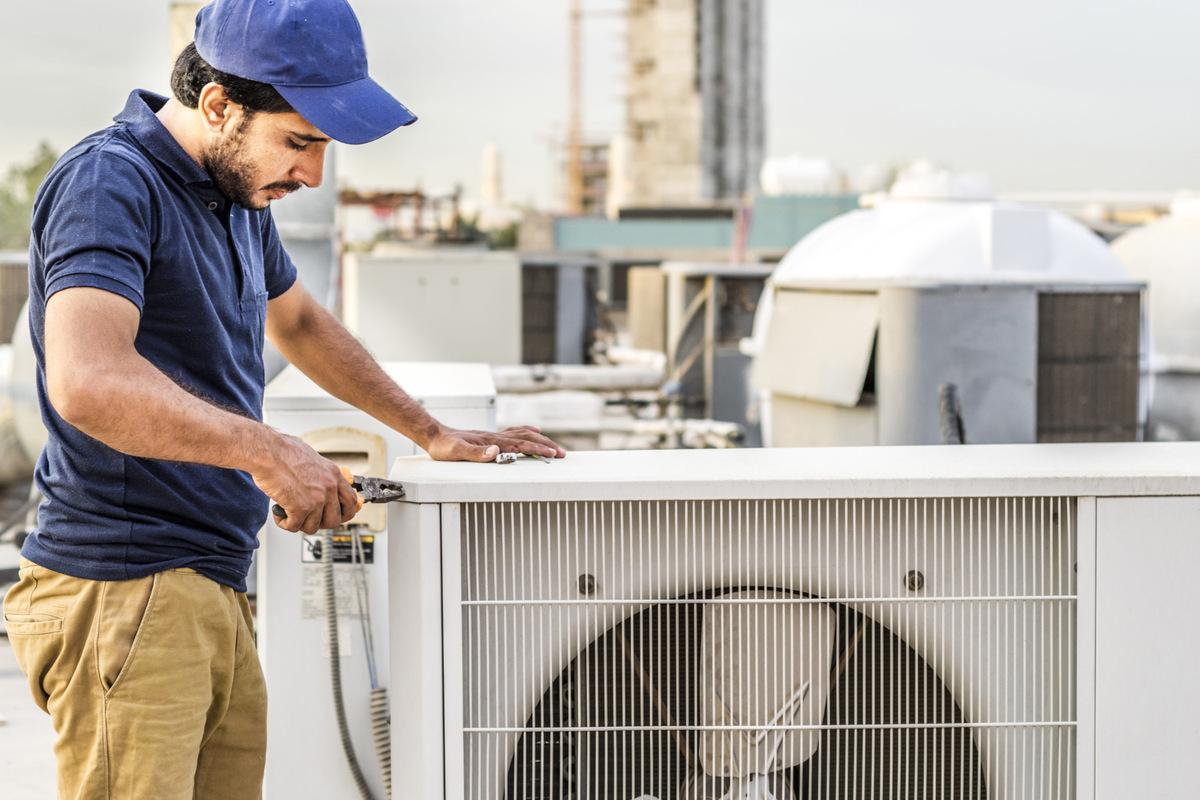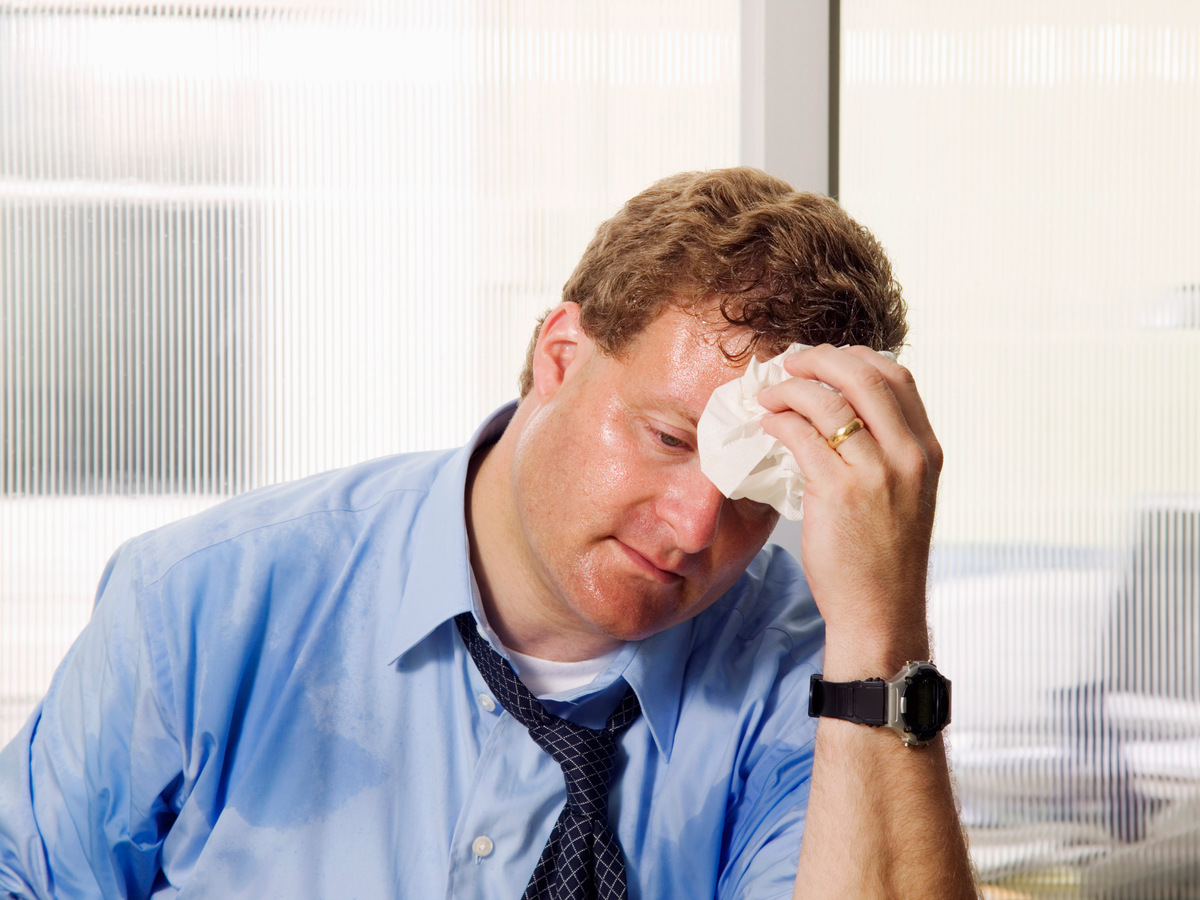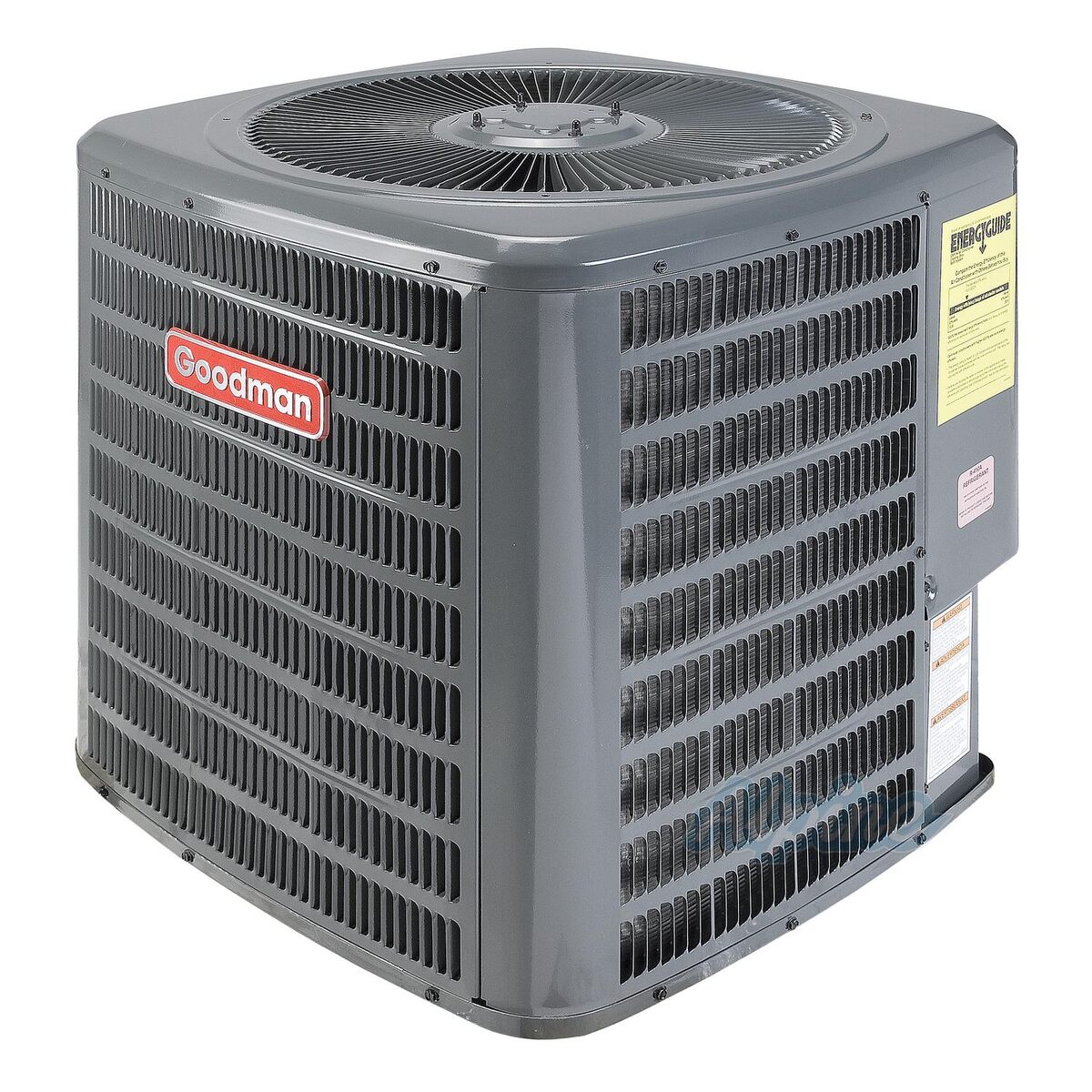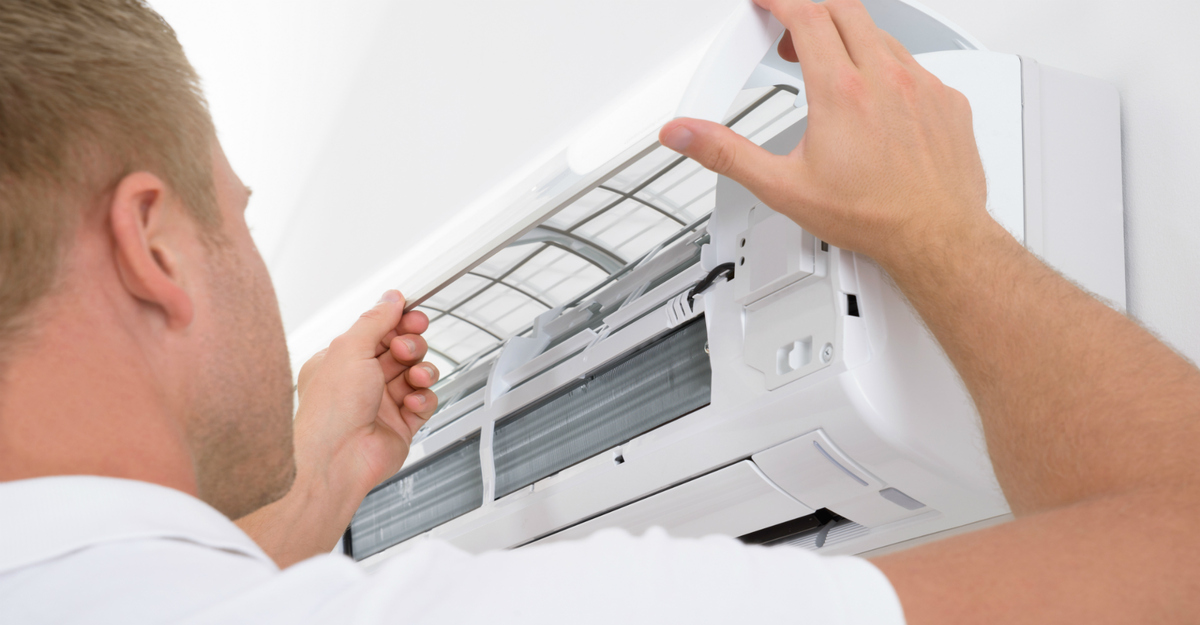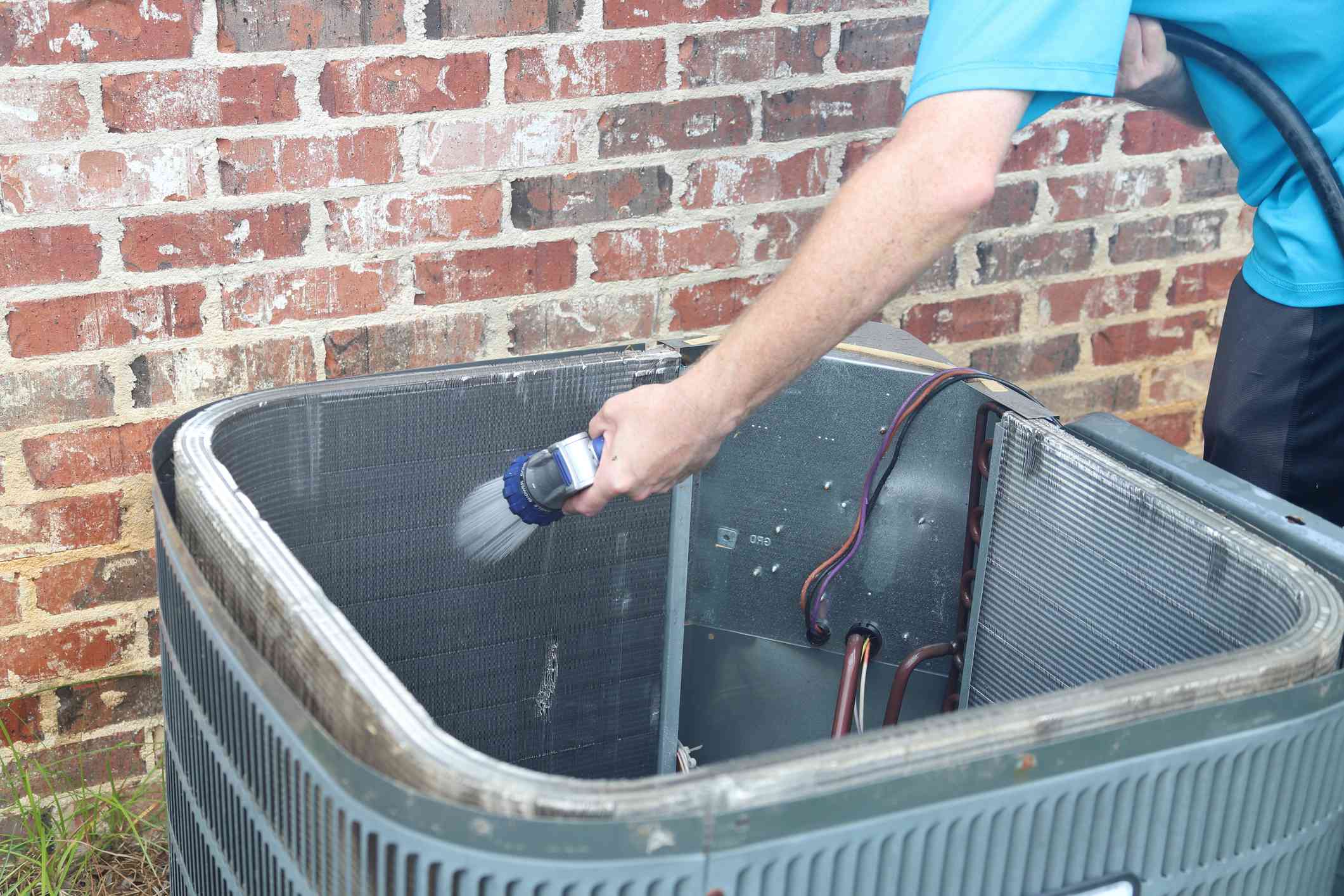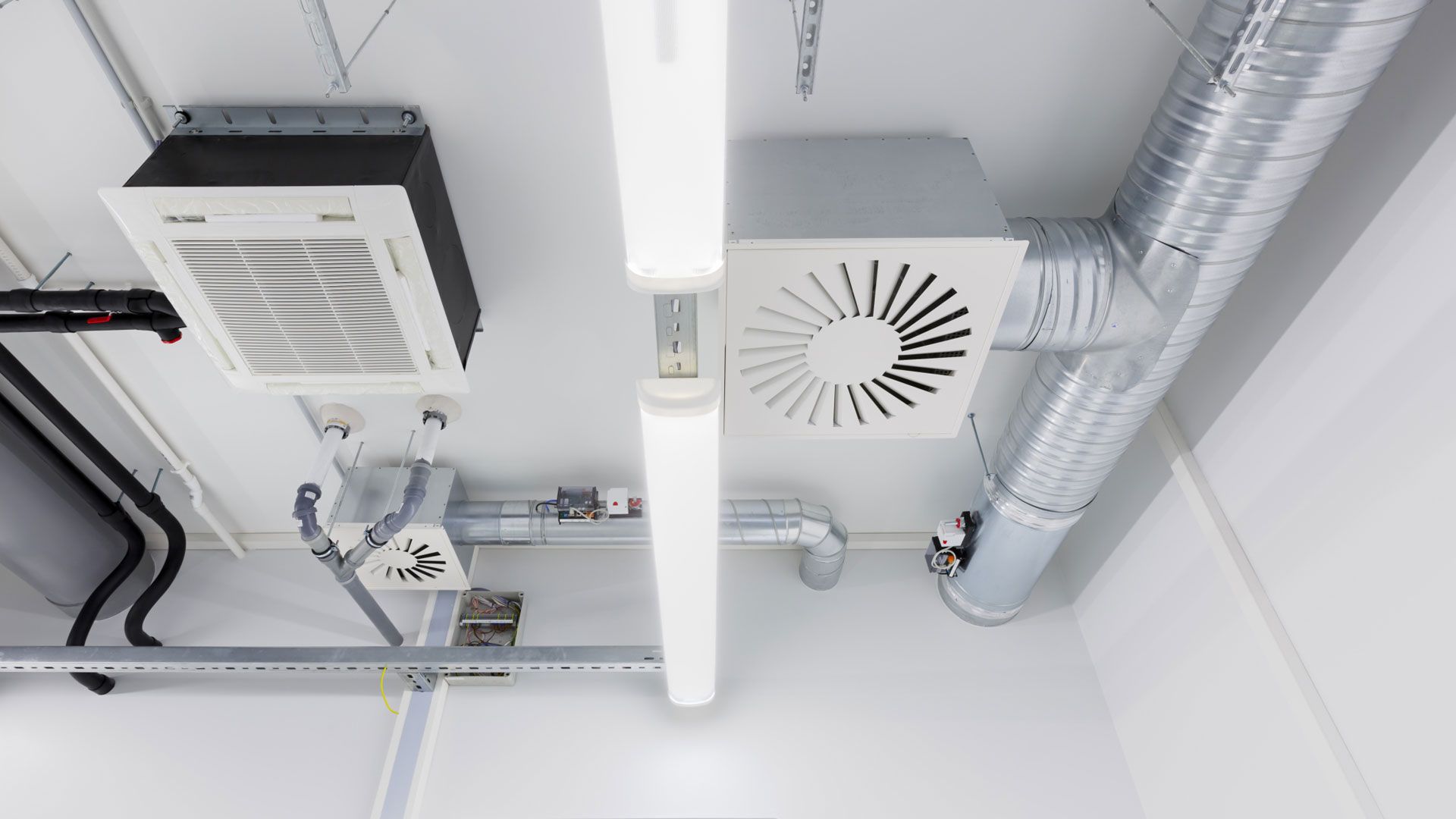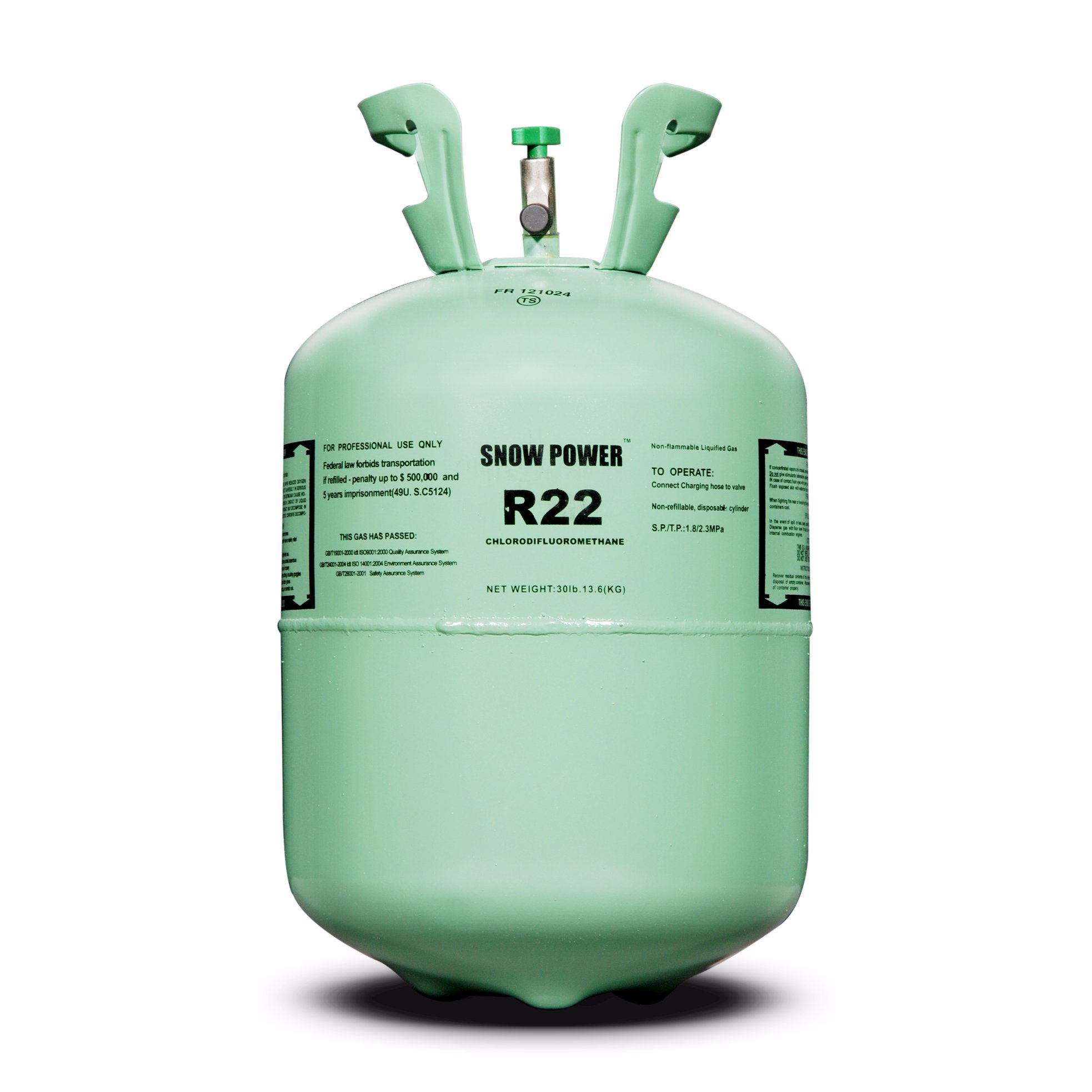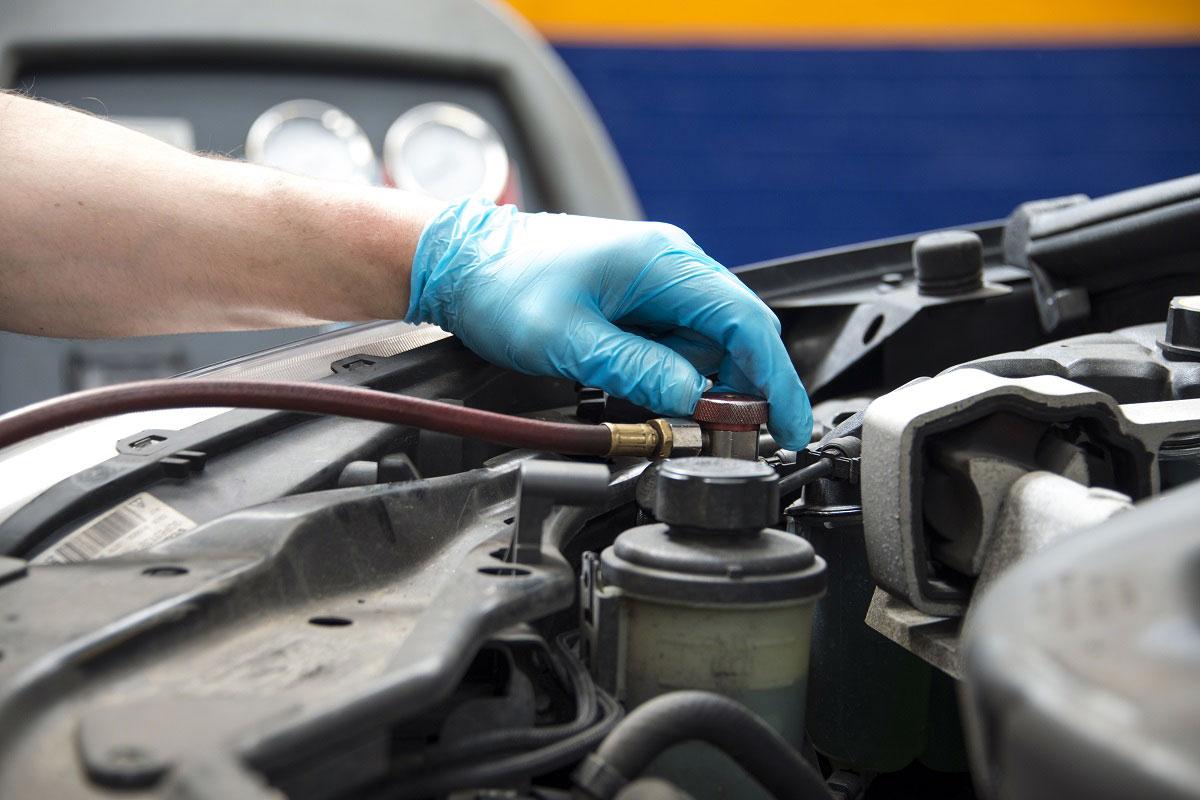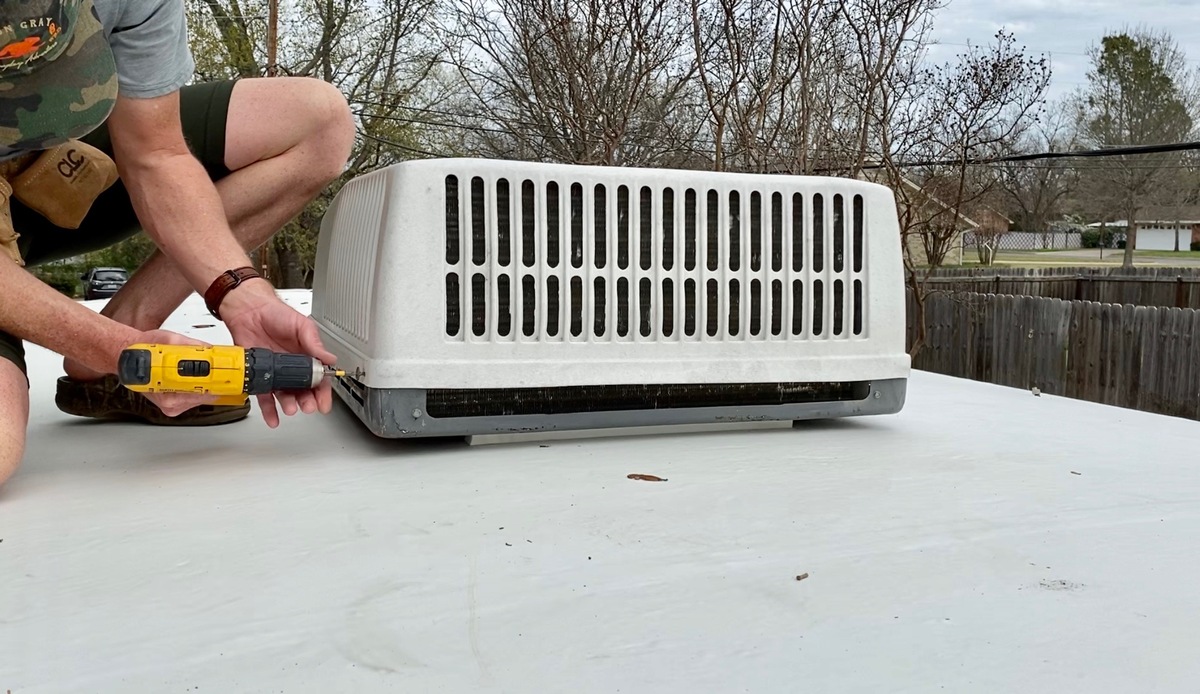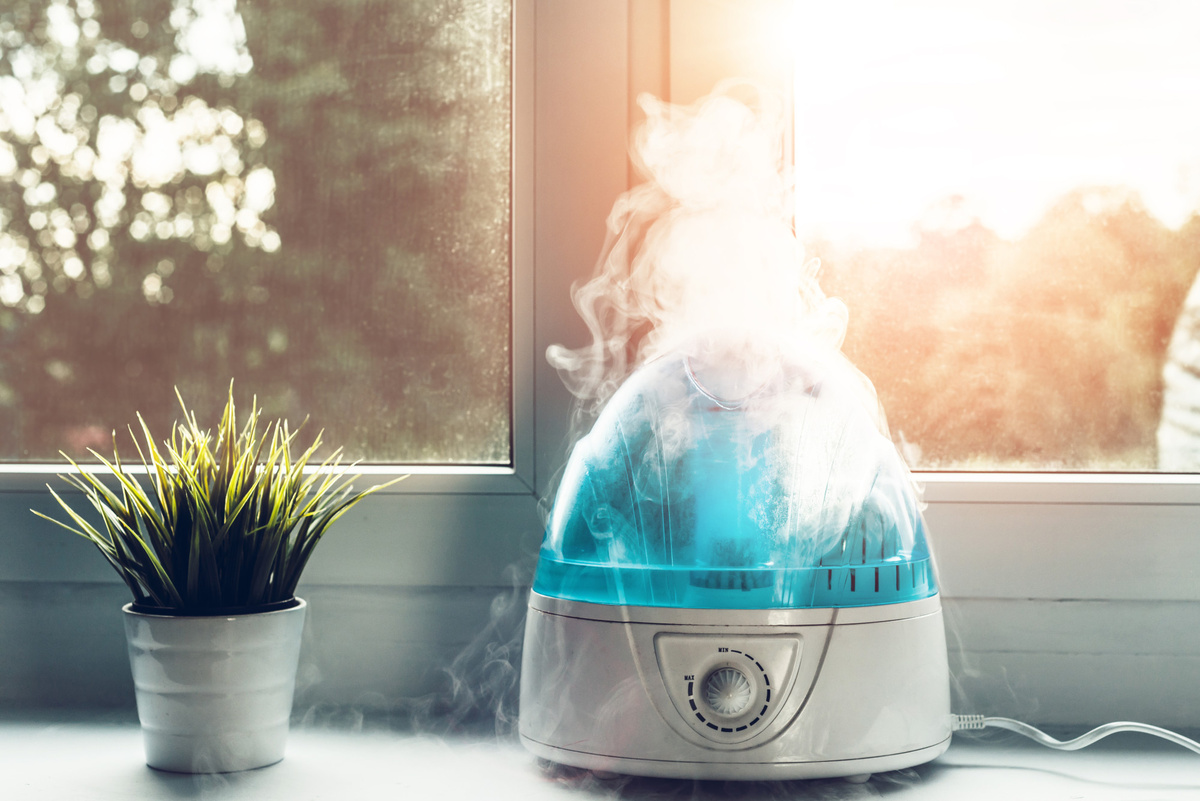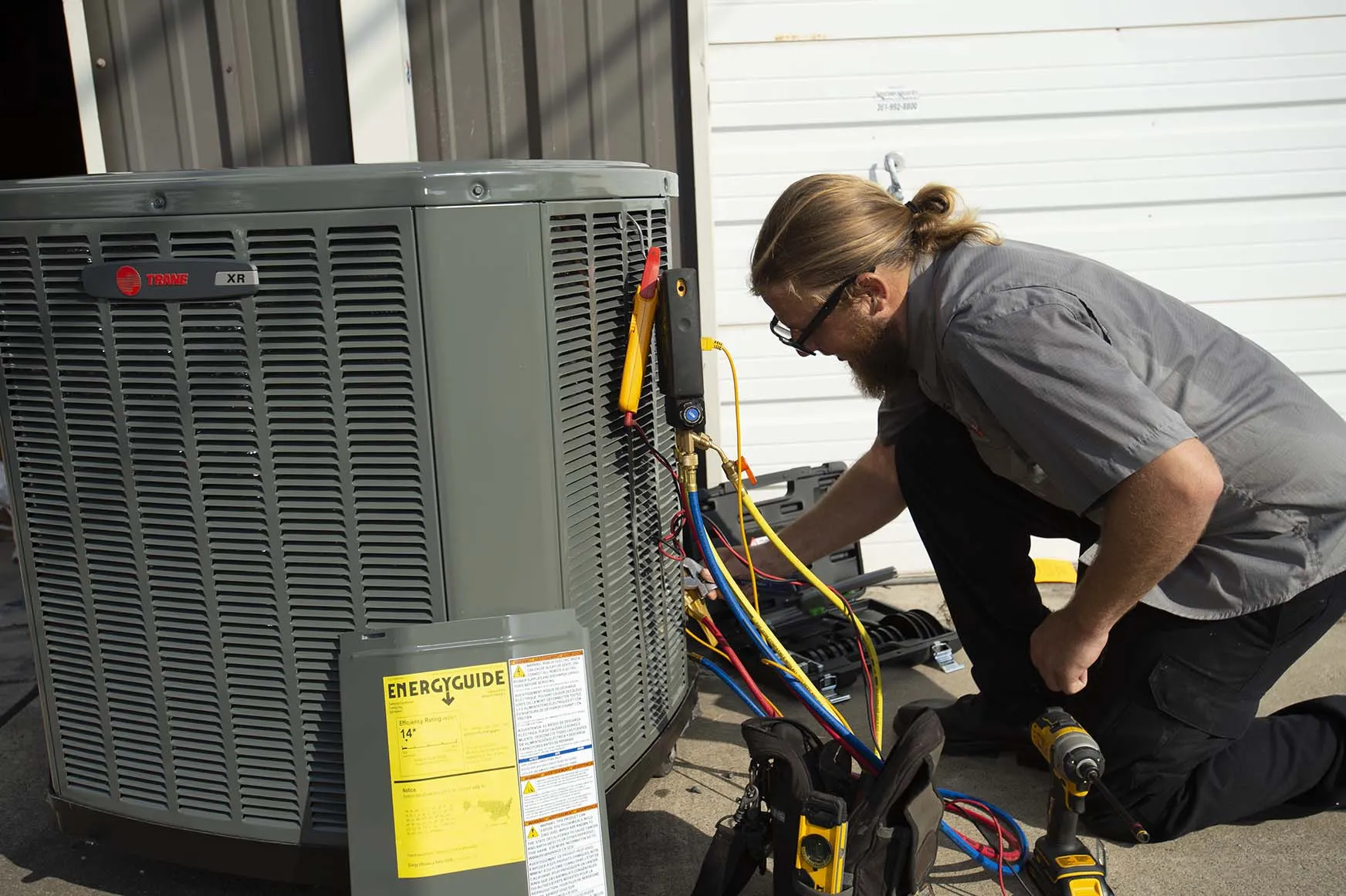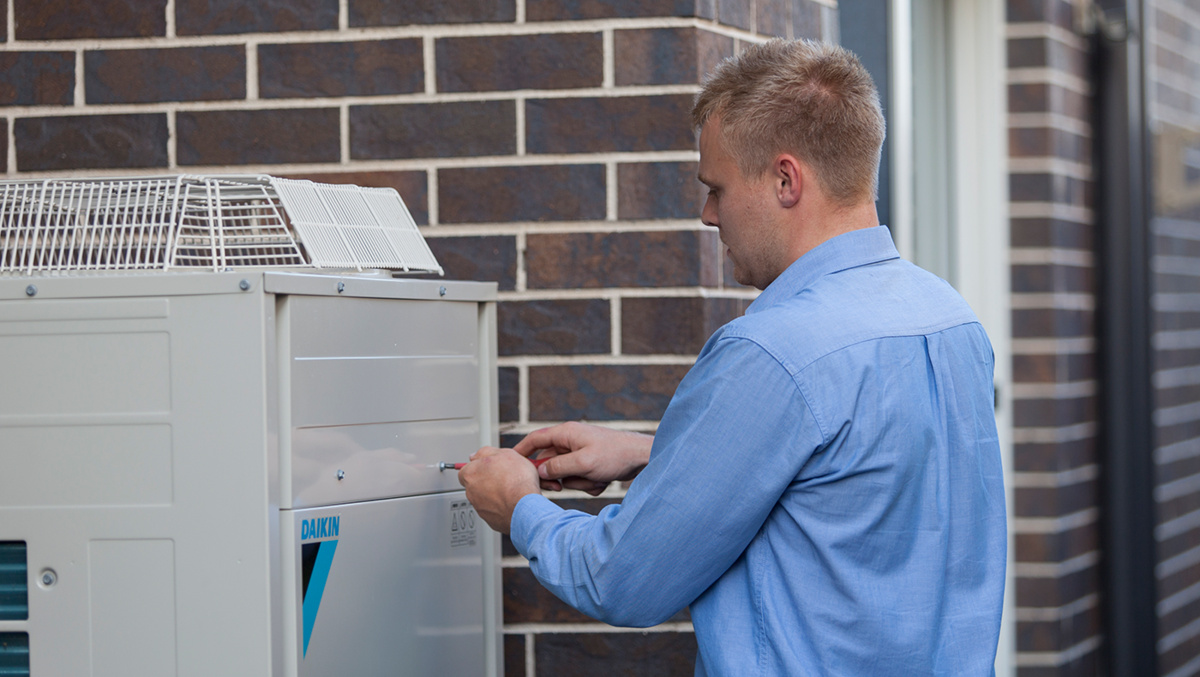Home>Home Maintenance>Why Is The Air Conditioning Not Cooling
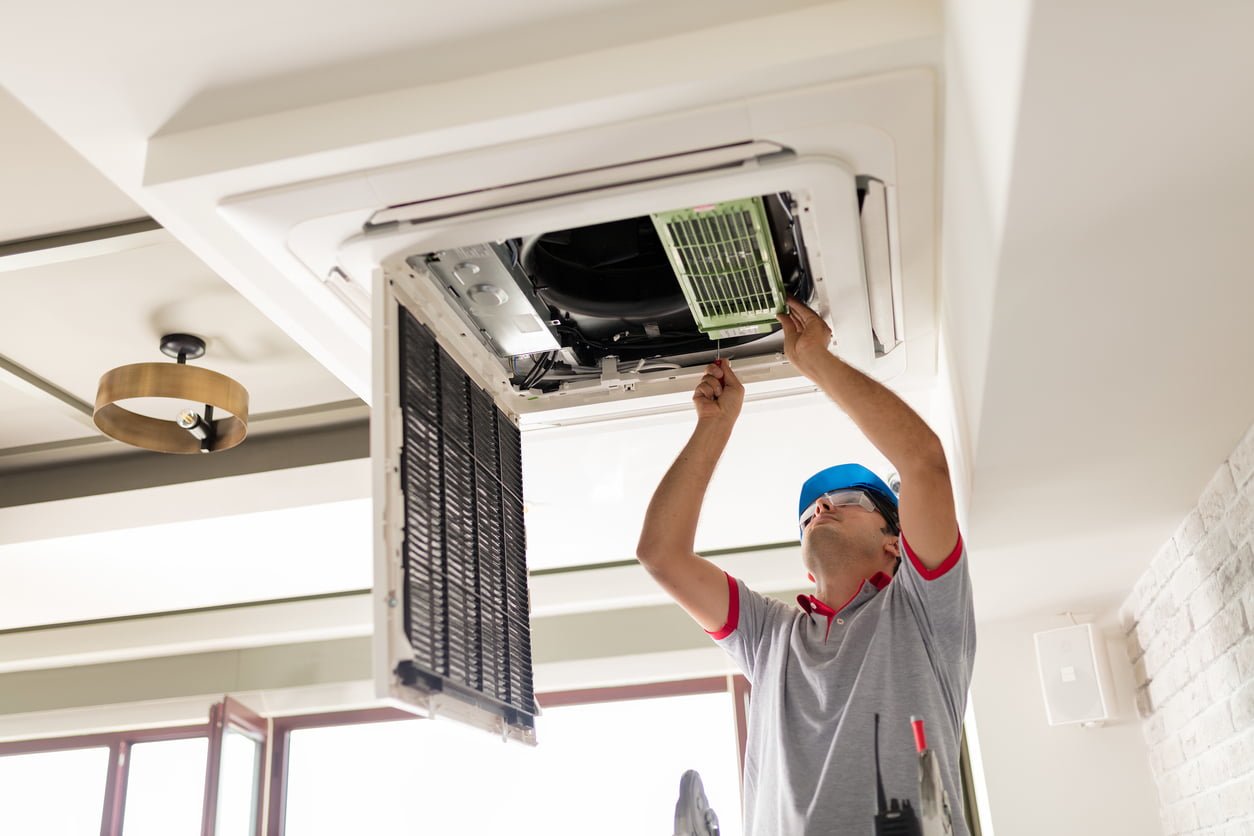

Home Maintenance
Why Is The Air Conditioning Not Cooling
Modified: March 6, 2024
Having trouble with your home's air conditioning not cooling properly? Find out the reasons and learn about essential home maintenance tips for ensuring optimal cooling performance.
(Many of the links in this article redirect to a specific reviewed product. Your purchase of these products through affiliate links helps to generate commission for Storables.com, at no extra cost. Learn more)
Introduction
Welcome to the world of home-maintenance! As a homeowner, it’s important to keep your living space comfortable, and one crucial aspect of that is maintaining a properly functioning air conditioning system. However, even the most well-maintained AC units can face issues, such as not cooling the air. If you find yourself in this unfortunate situation, don’t panic! In this article, we will explore some of the possible causes of why your air conditioning is not cooling and provide troubleshooting tips to help you resolve the issue.
Before we dive into the troubleshooting, it’s essential to understand that an air conditioning system consists of several components working in harmony to cool the air. When one of these components malfunctions, it can disrupt the cooling process. By identifying the root cause, you can save time and money by addressing the issue quickly.
Now let’s explore some common causes of why your air conditioning system may not be cooling effectively. Keep in mind that these causes can vary depending on the type and model of your AC unit:
Key Takeaways:
- Keep your air conditioning system running efficiently by regularly cleaning or replacing the air filters. This simple maintenance task can improve cooling performance and indoor air quality, saving you money on energy bills.
- Addressing electrical issues and ensuring proper insulation can enhance the overall efficiency of your air conditioning system, maintaining a comfortable indoor environment and reducing energy consumption.
Read more: Why Is My Air Conditioning Blowing Hot Air
Possible Causes of Air Conditioning Not Cooling
There are several factors that can contribute to an air conditioning system not cooling properly. Let’s take a closer look at some of the most common causes:
- Dirty Air Filters: One of the leading causes of reduced cooling efficiency is dirty air filters. Over time, dust and debris can accumulate in the filters, obstructing the airflow. This restriction prevents cold air from circulating effectively, causing the AC to struggle to cool the space. Regularly cleaning or replacing the air filters can often solve this issue.
- Refrigerant Leak: Refrigerant is a vital component in the cooling process. It absorbs heat from the indoor air and carries it outside, allowing the cooled air to be recirculated. If there is a refrigerant leak in your system, it will result in decreased cooling performance. A professional HVAC technician will need to locate and repair the leak and recharge the system with the correct amount of refrigerant.
- Malfunctioning Thermostat: The thermostat acts as the control center for your air conditioning system. If it is not functioning correctly, it may not accurately perceive the temperature of the room and fail to signal the AC to cool appropriately. Consider checking the thermostat settings, replacing the batteries, or consulting a technician to resolve any issues.
- Blocked or Restricted Airflow: Another common issue is obstructed airflow. Over time, dirt, debris, and even furniture can block the vents, hindering the flow of cold air. Ensure that the vents are clean and unobstructed to maximize cooling efficiency.
- Faulty Compressor: The compressor is responsible for circulating the refrigerant and pressurizing it to facilitate the cooling process. If the compressor is malfunctioning, it may not be able to sufficiently cool the air. A professional inspection is necessary to diagnose and repair any compressor issues.
- Insufficient Insulation: Inadequate insulation in your home can lead to cool air escaping and warm air infiltrating, reducing the overall cooling efficiency. Poorly insulated walls, windows, and doors can significantly impact your air conditioning system’s ability to cool the space effectively. Consider investing in proper insulation to improve energy efficiency and cooling performance.
- Electrical Issues: Faulty wiring, circuit breakers, or tripped fuses can cause your air conditioning system to malfunction. Electrical issues can disrupt the cooling process and even pose a safety risk. It’s essential to consult a professional electrician to accurately diagnose and fix any electrical problems.
- Improper AC Size: If your air conditioning system is undersized, it may struggle to cool the space adequately. Conversely, an oversized AC unit can result in short cycling, where the unit shuts off too quickly, preventing proper cooling. Proper sizing and installation of the air conditioning system are crucial for efficient cooling in your home.
Understanding these possible causes of an air conditioning system not cooling effectively can help you identify the issue and take appropriate action. However, troubleshooting and resolving these issues require knowledge and expertise. If you are not confident in diagnosing or repairing your AC unit, it’s best to consult a professional HVAC technician for assistance. In the next section, we will provide some general tips for troubleshooting air conditioning issues before seeking professional help.
Dirty Air Filters
One of the most common causes of an air conditioning system not cooling effectively is dirty air filters. Air filters play a crucial role in maintaining the air quality in your home and keeping the AC system running efficiently. Over time, these filters can become clogged with dust, dirt, pet dander, and other airborne particles, obstructing the airflow and reducing cooling performance.
When the air filters are dirty, the AC unit has to work harder to push the cooled air through the clogged filters. This strain on the system can lead to decreased airflow and inadequate cooling. Additionally, a dirty filter can also cause the evaporator coil to freeze, further impeding the cooling process.
To ensure optimal performance of your air conditioning system, it’s essential to clean or replace the air filters regularly. The frequency of replacement depends on various factors, such as the type of filter, the number of occupants in the house, and the presence of pets. As a general rule of thumb, it’s advisable to check the filters monthly and replace them every three to six months, or more frequently if they appear dirty.
Cleaning or replacing the air filters is a relatively simple task that can significantly improve the cooling efficiency of your AC system. Here’s how you can do it:
- Turn off the air conditioning system.
- Locate the air filter(s). They are usually located in the return air duct or the air handler unit.
- Remove the filter(s) from its housing.
- If the filter is reusable and washable, rinse it under running water to remove any dirt and debris. Allow it to dry completely before reinstalling.
- If the filter is disposable, replace it with a new one of the same size and type.
- Reinstall the filter(s) back into the housing, making sure they are properly secured.
- Turn on the air conditioning system.
Regularly cleaning or replacing the air filters not only improves the cooling efficiency but also helps maintain good indoor air quality. It reduces the strain on the AC system, extends its lifespan, and can even save you money on energy bills.
Keep in mind that while cleaning or replacing the air filters can resolve some cooling issues, there may be additional underlying causes for your AC not cooling. If you find that the air filters are clean, and the cooling problem persists, it’s best to consult a professional HVAC technician for a thorough inspection and diagnosis.
Refrigerant Leak
A refrigerant leak is another common cause of an air conditioning system not cooling effectively. Refrigerants are chemical compounds responsible for absorbing heat from the indoor air and releasing it outside, cooling the air that circulates through your home. Over time, due to factors such as normal wear and tear or physical damage, the refrigerant lines can develop leaks, resulting in a decrease in cooling performance.
When there is a refrigerant leak, the level of refrigerant in the system drops, causing the AC unit to struggle to cool the air properly. Reduced refrigerant levels lead to insufficient heat absorption and inadequate cooling. If left unaddressed, a refrigerant leak can eventually cause the AC compressor to fail or even damage other components of the system.
Identifying a refrigerant leak can be challenging, as the leaked refrigerant is often invisible. However, there are some signs that can indicate a potential refrigerant leak, such as:
- Inadequate cooling: If you notice that your air conditioning system is blowing warm air or not cooling as effectively as it used to, it could be a sign of a refrigerant leak.
- Frozen evaporator coil: A refrigerant leak can cause the evaporator coil to freeze due to decreased refrigerant levels. If you find ice buildup on the coil or notice water leaks from the indoor unit, it may indicate a refrigerant leak.
- Hissing or bubbling sounds: If you hear hissing or bubbling sounds near the AC unit, it could be a sign of a refrigerant leak. These sounds result from the refrigerant escaping through the leaking points.
- Increased energy bills: A refrigerant leak forces the AC system to work harder and longer to cool the air, resulting in increased energy consumption and higher utility bills.
If you suspect a refrigerant leak, it’s crucial to consult a professional HVAC technician to diagnose and repair the issue. Attempting to handle refrigerant leaks on your own can be dangerous and potentially illegal, as refrigerants are harmful to the environment.
A qualified technician will conduct a thorough inspection of the refrigerant lines and other components to identify the location and extent of the leak. Once the leak is located, they will repair it and recharge the system with the correct amount of refrigerant. It’s important to note that simply recharging the refrigerant without fixing the leak is not a long-term solution, as the refrigerant will continue to leak, causing cooling problems in the future.
By addressing a refrigerant leak promptly, you can restore proper cooling functionality to your air conditioning system, optimize energy efficiency, and prolong the lifespan of the unit.
Malfunctioning Thermostat
The thermostat serves as the control center for your air conditioning system, allowing you to set the desired temperature and regulating the operation of the unit. If your air conditioning system is not cooling effectively, a malfunctioning thermostat could be the culprit.
A malfunctioning thermostat may not accurately perceive the temperature of the room, leading to inconsistent cooling or an incorrect temperature reading. This can result in the AC system not running when it should, or running longer than necessary, causing inadequate cooling.
To determine if your thermostat is malfunctioning, you can perform a few simple checks:
- Check the settings: Make sure the thermostat is set to “cool” mode and the temperature is set lower than the room temperature.
- Replace the batteries: If your thermostat is battery-powered, low batteries can cause it to malfunction. Replace the batteries with fresh ones and see if it resolves the issue.
- Test other functions: Check if other features of the thermostat, such as fan settings or programmable schedules, are working correctly. If these functions are also malfunctioning, it indicates a problem with the thermostat.
- Inspect for physical damage: Examine the thermostat for any signs of physical damage, such as loose wiring or a cracked screen. Physical damage can affect its functionality and accuracy.
If you have performed these checks and the thermostat still appears to be malfunctioning, it’s best to contact a professional HVAC technician for further inspection and troubleshooting. They have the expertise and specialized tools needed to diagnose and repair thermostat issues.
In some cases, a malfunctioning thermostat may need to be recalibrated or replaced. A professional technician can assess the situation and recommend the most appropriate course of action. Upgrading to a programmable thermostat can also enhance the efficiency of your air conditioning system, allowing you to set temperature schedules and save energy.
Remember, a malfunctioning thermostat can impact the cooling performance of your AC system. Getting it fixed or replaced by a professional can ensure accurate temperature regulation, improve the overall cooling experience, and prevent unnecessary energy consumption.
Read more: Why Is My Car Air Conditioning Not Working
Blocked or Restricted Airflow
Airflow is crucial for an air conditioning system to efficiently cool your home. When the airflow is blocked or restricted, it disrupts the circulation of cold air, leading to insufficient cooling and discomfort. There are several factors that can cause blocked or restricted airflow in your AC system:
- Dirty vents and registers: Over time, dust, dirt, pet hair, and other debris can accumulate in the vents and registers. This buildup obstructs the airflow and reduces cooling efficiency. Regularly clean the vents and registers to ensure unrestricted airflow.
- Clogged air ducts: Dust, debris, and even mold can accumulate in the air ducts, creating blockages and reducing airflow. Professional duct cleaning can remove these obstructions and improve the overall airflow and cooling performance.
- Furniture or objects blocking vents: Ensure that furniture, curtains, or other objects are not blocking the vents. Blocked vents restrict the flow of cold air into the room, preventing adequate cooling.
- Collapsed or damaged ductwork: If your air conditioning system relies on ductwork to distribute the cooled air, collapsed or damaged ducts can significantly impact airflow. Inspect the ductwork for any signs of damage or disconnection and have them repaired or replaced if necessary.
- Improperly sized ductwork: In some cases, the ductwork might be too small or too large for the air conditioning system. Improperly sized ducts can restrict airflow and reduce cooling efficiency. Consult a professional HVAC technician to assess and resize the ductwork if needed.
To address blocked or restricted airflow issues, you can take the following actions:
- Regularly clean the vents and registers: Use a vacuum or a soft brush to remove any dust or debris that may be blocking the vents and registers.
- Ensure proper furniture placement: Arrange furniture in a way that does not obstruct the vents. This allows for optimal airflow and cooling distribution throughout the room.
- Inspect the ductwork: If you suspect issues with the ductwork, such as damage or collapse, contact a professional ductwork technician to assess and repair or replace the ducts as needed.
By ensuring unobstructed airflow, you can improve the performance of your air conditioning system and enhance cooling efficiency. However, if you have tried these steps and the airflow issue persists, it’s best to consult with a professional HVAC technician. They have the expertise and knowledge to identify and address more complex airflow problems, ensuring effective cooling in your home.
Check if the air filter is dirty and needs to be replaced. A dirty filter can restrict airflow and cause the air conditioning to not cool properly.
Faulty Compressor
The compressor is a crucial component of your air conditioning system that plays a vital role in the cooling process. It’s responsible for circulating the refrigerant and pressurizing it, allowing it to absorb heat from the indoor air and release it outside. If the compressor is faulty or malfunctioning, it can lead to a decrease in cooling performance.
There are several factors that can contribute to a faulty compressor:
- Electrical issues: Faulty wiring, a tripped circuit breaker, or a blown fuse can disrupt the electrical supply to the compressor, causing it to malfunction. An HVAC technician can inspect the electrical connections and address any wiring or electrical problems.
- Lack of maintenance: Lack of regular maintenance can cause the compressor to wear out over time. If the compressor becomes dirty or experiences excessive wear, it may not function optimally, leading to reduced cooling efficiency.
- Refrigerant issues: Insufficient or overcharged refrigerant levels can put strain on the compressor, causing it to malfunction. It’s important to have the refrigerant levels checked and adjusted by a professional to ensure proper operation.
- Mechanical failure: The compressor can experience mechanical failure due to various reasons, such as wear and tear, motor issues, or damaged parts. In such cases, it may be necessary to replace the compressor to restore cooling functionality.
If you suspect a faulty compressor, it’s crucial to contact a professional HVAC technician for proper diagnosis and repair. The technician will assess the compressor’s condition, inspect the associated components, and perform any necessary repairs or replacements.
It’s important to note that dealing with a faulty compressor can be complex and potentially dangerous, as it involves working with refrigerant and high voltage electrical components. It’s best to leave compressor repairs to trained professionals who have the knowledge and expertise to handle these situations safely.
Regular maintenance and routine inspections can help prevent compressor issues. It’s recommended to schedule annual maintenance checks for your air conditioning system to ensure all components, including the compressor, are in good working condition. This can extend the lifespan of the compressor and help maintain efficient cooling performance.
By addressing and resolving compressor-related issues promptly, you can ensure that your air conditioning system operates smoothly, providing optimal cooling comfort for your home.
Insufficient Insulation
Insulation in your home is essential for maintaining a comfortable indoor environment and maximizing the efficiency of your air conditioning system. Insufficient insulation can lead to cool air escaping and warm air infiltrating your home, resulting in reduced cooling efficiency and discomfort.
There are several areas in your home where insufficient insulation can impact cooling performance:
- Walls: Poorly insulated walls allow heat to transfer more easily between the outdoor and indoor environments. This can lead to the AC system working harder to maintain a comfortable temperature.
- Attic: Inadequate insulation in the attic can cause hot air to infiltrate the living spaces below, making it more difficult for the air conditioning system to cool the rooms effectively.
- Windows and doors: If windows and doors are not properly sealed or lack proper insulation, they can allow warm air to leak in and cool air to escape. This can create drafts and hinder the cooling process.
- Floors and ceilings: Insufficient insulation in floor spaces and ceilings can result in the transfer of heat between different levels of your home. Rooms on higher floors may be significantly warmer, requiring the AC system to work harder to cool them.
To address insufficient insulation, consider the following steps:
- Inspect and add insulation: Hire a professional to inspect your home’s insulation levels and identify areas that need improvement. Adding insulation to walls, attics, floors, and ceilings can help maintain a comfortable indoor temperature and reduce the strain on your air conditioning system.
- Seal windows and doors: Use weatherstripping or caulking to seal any gaps around windows and doors. This will prevent hot air from entering and cool air from escaping, improving your AC system’s cooling efficiency.
- Consider window treatments: Install blinds, shades, or curtains to reduce heat gain during sunny hours. This can help minimize the strain on your air conditioning system.
Improving insulation in your home can have long-term benefits, not just for cooling efficiency but also for energy savings and overall comfort. It is recommended to consult with insulation professionals or HVAC technicians to assess your home’s insulation needs and determine the most effective solutions.
It’s important to note that proper insulation is not only beneficial for cooling but also for heating during the colder months. Maintaining adequate insulation throughout the year will enhance the overall energy efficiency and comfort of your home.
Electrical Issues
Electrical issues can significantly impact the performance of your air conditioning system and lead to inadequate cooling. Faulty wiring, tripped circuit breakers, or other electrical problems can disrupt the power supply to your AC unit, preventing it from functioning correctly.
Here are some common electrical issues that can affect the cooling performance of your air conditioning system:
- Faulty wiring: Poorly installed or worn-out electrical wiring can cause intermittent power supply or complete power failure to your AC unit. This can result in the system not turning on or not cooling properly. Professional electricians can inspect the wiring, identify any faulty connections, and make the necessary repairs.
- Tripped circuit breakers: Overloaded circuits or electrical faults can cause the circuit breaker to trip, cutting off power to the AC unit. If your air conditioning system suddenly stops working, check the circuit breaker panel and reset any tripped breakers. If the breaker keeps tripping, it may indicate an underlying electrical problem that requires professional attention.
- Blown fuses: Similar to tripped breakers, blown fuses can disrupt the power supply to your AC unit. If you have a fuse-based electrical system, check for blown fuses and replace them if necessary. Keep in mind that blown fuses are a symptom of an underlying electrical issue that needs to be addressed.
It is important to note that electrical issues can be hazardous and are best handled by qualified electricians. Attempting to fix electrical problems yourself can lead to injury or further damage to your electrical system.
If you are experiencing electrical issues with your air conditioning system, it is recommended to follow these steps:
- Turn off the AC unit: If you suspect an electrical issue, turn off the power to the air conditioning system to prevent any potential dangers.
- Check the circuit breaker panel: Reset any tripped breakers by switching them off and then back on. If it trips again immediately or repeatedly, do not attempt to reset it again and contact an electrician.
- Inspect for blown fuses: If you have a fuse-based electrical system, check for blown fuses and replace them if needed. Remember, blown fuses are a symptom of an underlying issue and may require professional attention.
- Contact a professional electrician: If you are unable to resolve the electrical issue or if you are unfamiliar with electrical systems, it is best to consult a licensed electrician. They will have the expertise and tools to assess and repair any electrical problems.
By promptly addressing electrical issues, you can ensure the proper functioning of your air conditioning system and avoid further damage or safety risks. Regular maintenance, including routine electrical inspections, can help prevent electrical issues and maintain the efficiency of your AC unit.
Read more: What Is Air Conditioning
Improper AC Size
The size of your air conditioning system plays a vital role in its cooling efficiency. If the AC unit is improperly sized for your home, it can lead to inadequate cooling and discomfort. Both undersized and oversized AC units can cause problems.
An undersized AC unit is unable to cool your home effectively because it doesn’t have enough capacity to handle the cooling load. The system will continuously run but struggle to reach the desired temperature, resulting in reduced cooling efficiency and increased energy consumption. In this case, the AC may feel as if it’s constantly running but not adequately cooling the room.
Conversely, an oversized AC unit may cool the space quickly, but it will cycle on and off frequently, resulting in short cooling cycles. This frequent cycling puts unnecessary strain on the system, increases energy consumption, and fails to dehumidify the air properly. In addition, short cycling can cause uneven temperature distribution and reduced comfort.
The best way to ensure the proper sizing of your AC unit is to consult a professional HVAC technician who can perform a load calculation for your home. This calculation considers factors such as the size of the space, insulation, climate, and other variables to determine the appropriate AC size.
If you suspect that your air conditioning system is improperly sized, consider the following steps:
- Consult a professional technician: Contact an HVAC professional to assess your current AC system and ensure it is correctly sized for your home. They will evaluate factors such as square footage, insulation levels, and specific cooling needs.
- Consider a replacement or retrofit: If your current AC unit is not properly sized, your HVAC technician may recommend replacing it with a properly sized unit. Alternatively, in some cases, a retrofit solution may be available to improve the efficiency of your existing system.
By addressing improper AC sizing, you can improve the cooling efficiency of your air conditioning system, enhance comfort levels, and potentially reduce energy consumption. Keep in mind that installing the correct-sized AC unit is crucial not just for cooling effectiveness but also for long-term performance and energy efficiency.
Tips for Troubleshooting Air Conditioning Issues
When your air conditioning system is not cooling effectively, there are some troubleshooting steps you can take before seeking professional help. These tips can help you identify and potentially resolve common AC issues:
- Check the thermostat: Ensure that the thermostat is set to “cool” mode and the temperature is set lower than the current room temperature. Replace the batteries if needed and make sure the thermostat is functioning correctly.
- Inspect the air filters: Dirty or clogged air filters can hinder airflow and reduce cooling efficiency. Check the air filters and clean or replace them as necessary. Regularly cleaning or replacing the filters can improve cooling performance.
- Verify the airflow: Check if there are any obstructions blocking the vents and registers. Ensure that furniture or objects are not obstructing the airflow. Remove any blockages to allow the cold air to flow freely.
- Examine for refrigerant leaks: Look for any signs of refrigerant leaks, such as hissing sounds, oily residue, or ice buildup on the evaporator coil. If you suspect a refrigerant leak, consult a professional HVAC technician for diagnosis and repair.
- Check the circuit breaker: Inspect the circuit breaker panel to ensure that the circuit for the AC system is not tripped. If it is, try resetting the breaker. If the breaker trips again, contact an electrician as there may be an underlying electrical issue.
- Clean the condenser unit: The condenser unit, located outside, can become dirty or clogged with debris. Inspect the unit and clean any dust or debris that may be blocking the fins. Keep the area around the unit clear of vegetation for optimal airflow.
- Inspect ductwork: Examine the ductwork for signs of damage, disconnection, or leaks. Seal any leaks with duct tape or contact a professional for repairs or inspection.
- Consider the insulation: Check the insulation levels in your home, particularly in the attic and walls. Inadequate insulation can impact cooling efficiency. Consult with insulation professionals to assess and improve insulation if needed.
While these troubleshooting tips can help identify and resolve common AC issues, it’s important to remember that air conditioning systems are complex and may require professional expertise for accurate diagnosis and repair. If you’re unable to resolve the problem or are uncomfortable with troubleshooting, it’s recommended to contact a professional HVAC technician for further assistance.
Regular maintenance of your air conditioning system, such as annual inspections and filter replacements, can also help prevent cooling issues and ensure the efficient operation of your AC unit. By staying proactive and addressing potential problems early on, you can maintain a cool and comfortable home during the hot summer months.
Conclusion
Having a properly functioning air conditioning system is essential for maintaining a comfortable living environment, especially during hot summer months. When your air conditioning is not cooling effectively, it can be frustrating and leave you feeling uncomfortable. However, by understanding the possible causes and employing some troubleshooting techniques, you can often resolve the issue or identify when it’s time to seek professional help.
In this article, we explored several common causes of air conditioning systems not cooling properly, including dirty air filters, refrigerant leaks, malfunctioning thermostats, blocked or restricted airflow, faulty compressors, insufficient insulation, electrical issues, and improper AC sizing. We discussed tips for troubleshooting these issues, such as checking the thermostat, inspecting air filters, examining ductwork, and ensuring proper insulation.
While some issues can be resolved through simple maintenance tasks or adjustments, it’s important to recognize when it’s necessary to consult a professional HVAC technician. They have the expertise and equipment to diagnose and repair more complex issues, such as refrigerant leaks or compressor malfunctions.
Remember, regular maintenance of your air conditioning system is crucial for optimal performance and energy efficiency. Schedule annual inspections, clean or replace air filters regularly, and keep the condenser unit clean and free from debris. Additionally, be mindful of properly insulating your home and addressing any electrical issues promptly.
By taking proactive steps, troubleshooting air conditioning issues, and seeking professional assistance when necessary, you can ensure that your air conditioning system operates efficiently, providing you with cool and comfortable indoor spaces when you need it most.
Frequently Asked Questions about Why Is The Air Conditioning Not Cooling
Was this page helpful?
At Storables.com, we guarantee accurate and reliable information. Our content, validated by Expert Board Contributors, is crafted following stringent Editorial Policies. We're committed to providing you with well-researched, expert-backed insights for all your informational needs.
